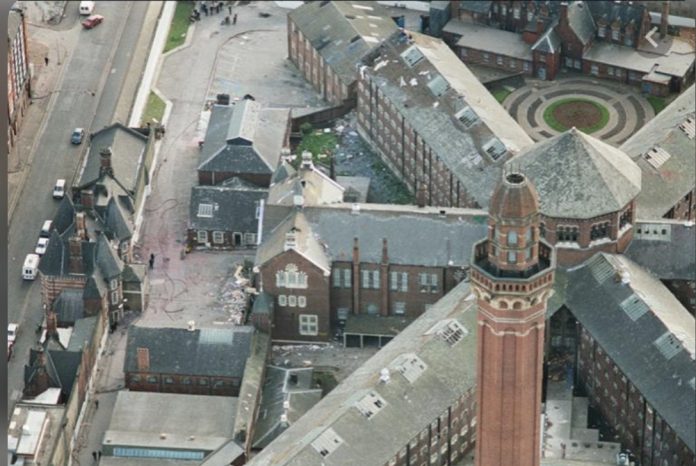Strangeways prison has become the latest jail to receive an urgent notification for improvement after inspectors found standards had “collapsed” with filthy wings, an infestation of vermin including rats, and catastrophic levels of illicit drugs linked to organised crime with very high rates of violence.
The latest inspection by His Majesty’s Inspectorate of Prisons found that it was was not safe enough
The prison’s own data showed it to be amongst the most violent of all adult men’s prisons in England and Wales, with the highest rate of serious assaults.
Since the last inspection, there had been six self-inflicted deaths and a further three deaths with suspected links to drug abuse. There had been a steep rise in the rate of self-harm, which was among the highest for adult men’s prisons.
Illegal drug use was driving much of the instability in the prison: the number of weapons and other illicit items found in recent months were amongst the highest of all prisons holding adult men and the proportion of prisoners testing positive for drug use was very high at 39%.
Given the severity of the situation, inspectors were concerned by how long it was taking the prison service to install more secure cell windows or to replace damaged netting over exercise yards to limit the delivery of drugs and other illicit items by drones.
Prisoners had used the heating elements from their kettles to burn holes in newly fitted, supposedly secure windows, meaning that they were not effective in preventing drone access. Contractors doing the installation had been being threatened by prisoners for interrupting their supply.
Further fuelling the demand for drugs, men spent far too long locked in their cells with nothing to do. Inspectors found only 19% of prisoners had left their wing to attend purposeful activity, which was shocking in a jail whose stated purpose is as a training prison.
There were significant weaknesses in the provision of education, training and work, and attendance was low and too many places remained unfilled.
Although not overcrowded, leaders at every level had allowed living conditions to become squalid. There were chronic rodent infestations, including rats, which were made worse by the amount of food thrown out of windows. Many cell windows were smashed, and prisoners were ripping up foam from mattresses and pillows to push into the window frame to stop the cold from getting in.
Staff morale was, unsurprisingly, low. Many officers were new to their roles yet were assigned to work with very serious, sophisticated and often aggressive offenders. Wings were chaotic, with inexperienced officers struggling to manage prisoners or to challenge poor or even criminal behaviour.
While prison leaders were aware their staff needed more support to be competent in their roles, most officers said they had never or rarely met with a manager or mentor to discuss their progress in their time at the jail.







